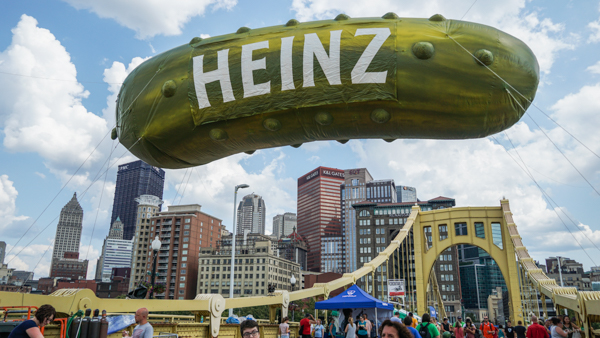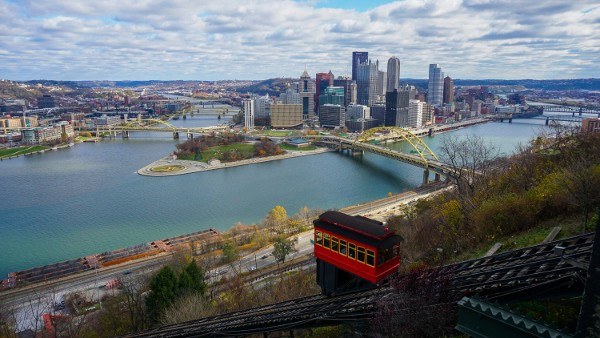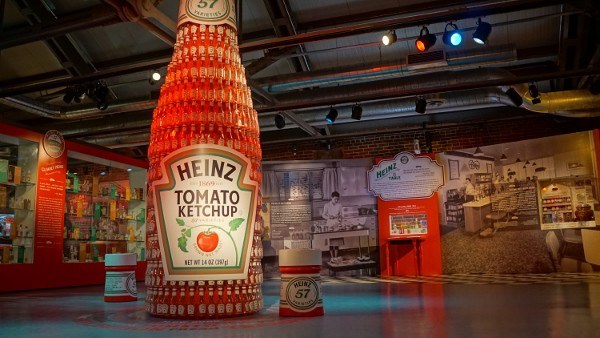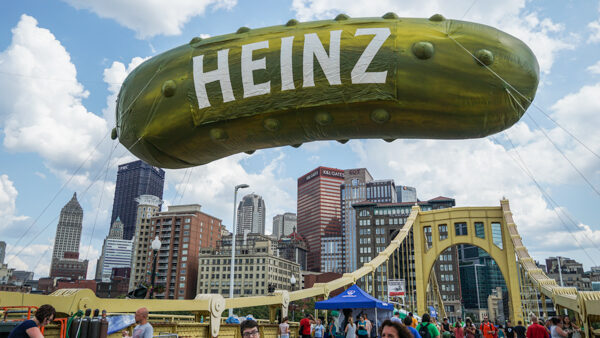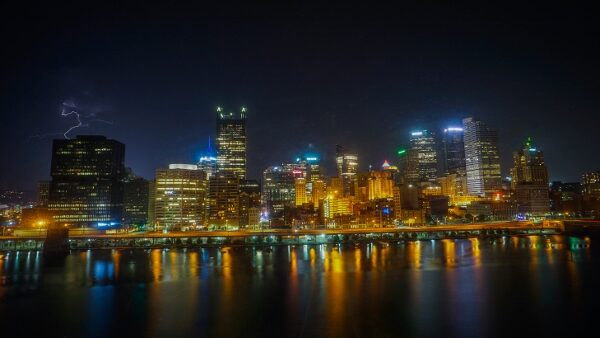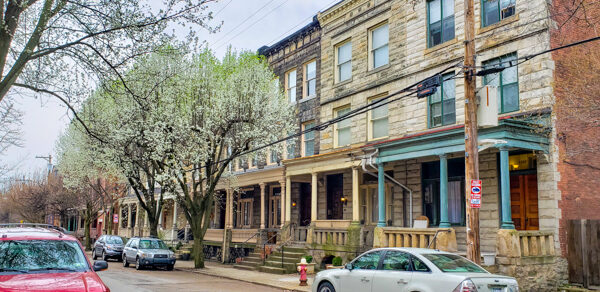Published by Jeremy. Last Updated on January 8, 2025.
Disclaimer: Our site uses demographic data, email opt-ins, display advertising, and affiliate links. Please check out our Terms and Conditions. Pricing, operating hours, or menus may have changed since our initial visit and may not be reflected in subsequent updates. Please confirm these directly with any business or attraction prior to visiting.
Since founding Discover the Burgh, we've seen a number of Pittsburgh questions come up time and time again. Things like “what are the best places to see when visiting?” or “what are the best restaurants” are a few common questions.
As such, we thought it could be helpful if we put together a Pittsburgh FAQ page with some of the most commonly asked questions about the city in the categories of history and geography, attractions, dining and libations, events, visiting the city, and living here. So if you had a general question about the city, odds are good this FAQ page will have your answer.
With each of these, we may have additional links for further reading that you may want to check out as well!
Navigate the Pittsburgh FAQ
This guide to frequently asked questions about Pittsburgh is broken up into the following sections. Click the link to jump to the section that you are most interested in or scroll down to read them all!
History & Geography
Where is Pittsburgh located?
Pittsburgh is located in southwest Pennsylvania in Allegheny County. The city's coordinates are 40.4406° N, 79.9959° W.
Is Pittsburgh a midwest city?
No- Pennsylvania is part of the Northeast and Pittsburgh can also be considered part of Appalachia. The distinction for midwest begins in Ohio roughly 40 miles to the west.
When was Pittsburgh founded?
Pittsburgh was incorporated as a city in 1816 but its first colonial settlements began in the early 1700s.
The first colonists arrived in the Pittsburgh region in the early 1700s. The British began building a fort in 1754 but the French assumed control of the region before it was finished and built Fort Duquesne. In 1758 the British took control of the region once again and established Fort Pitt, and grew until Pittsburgh received its first charter as a borough in 1784.
Prior to colonial settlements, there has been evidence of Native Americans living in the region dating back at least 19,000 years at Meadowcroft Rockshelter.
Who was Pittsburgh named after?
Pittsburgh was named after William Pitt (the elder) by General John Forbes when the British took control over the strategic confluence point at the Battle of Fort Duquesne in 1758. Their primary fort was then named Fort Pitt. One remaining building, the Fort Pitt Blockhouse, can still be found at Point State Park and is considered the oldest building in the city.
Why does Pittsburgh have an h in it?
Pittsburgh was named by General John Forbes who likely included the h due to his Scottish background (said to be pronounced Pittsborough like that famous city in Scotland). In 1891 the United States Board on Geographic Names uniformly dropped the h from all cities ending in burgh, and was formally reinstated in 1911.
As such, if you look at historical documents from 1891 to 1911 you may find references to the city as Pittsburg! Just don't call it that now, please.
What are Pittsburgh's nicknames?
Pittsburgh's most common nicknames include the City of Bridges, Iron City, Steel City, the Burgh, the 412, the Paris of Appalachia, and the City of Champions.
How many neighborhoods does Pittsburgh have?
Pittsburgh has 90 neighborhoods, although some would argue the official names and boundaries for a few. The area referred to as Lawrenceville, for example, is actually three unique neighborhoods (Lower, Central, and Upper Lawrenceville) and Perry North is often called Observatory Hill by locals to give a few examples.
How many rivers does Pittsburgh have?
Pittsburgh has three rivers- the Allegheny to the north, the Monongahela to the south, and the Ohio River to the west. They come together at the confluence at Point State Park. If you take any history tour like on the Gateway Clipper they may try and quiz you about the city's fourth river, which is actually an underground aquifer.
How many bridges does Pittsburgh have?
Pittsburgh has 446 bridges, more than Venice, Italy!
What is the population of Pittsburgh?
Pittsburgh's population is at approximately 300,000 within the city limits. The population has fallen over 50% from its highs in the 1950s due to the collapse of the steel industry and its long-term recovery. The population of the metro area at large is approximately 2.4 million.
What major cities are near Pittsburgh?
Pittsburgh is two hours from Cleveland, three hours and fifteen minutes from Buffalo, four hours from Washington DC, and four and a half hours from Philadelphia, and six hours from New York City by car pending traffic.
For ideas for weekend trips from Pittsburgh, click the previous link!
What are Pittsburgh's sister cities?
Pittsburgh's sister cities include Bilbao, Spain; Donetsk, Ukraine; Fernando de la Mora, Paraguay; Karmiel, Israel; Kolkata, India; Matanzas, Cuba; Misgav, Israel; Novokuznetsk, Russia; Ostrava, Czech Republic; Presov, Slovakia; Saitama, Japan; San Isidro, Nicaragua; Sheffield, UK; Sofia, Bulgaria; Skopje, Macedonia; Wuhan, China; and Zagreb, Croatia.
What is a Yinzer?
A yinzer is often classified as someone who is old-school Pittsburgh; particularly those who speak in the local dialect Pittsburghese. In recent years, however, the term has opened up a bit more for anyone who has taken on Pittsburgh traditions.
What is Pittsburghese?
Pittsburghese is a local dialect spoken in the Pittsburgh area, mostly from those who have lived here since the steel days. Common phrases you may hear include “yinz” (a plural you like y'all), “nebby” (nosy), “slippy” (slippery), “worsh” (wash), “n'at” (and that), “dahn” (down), and “Stillers” (Steelers) to name a few.
For example “Yinz goin dahn north shore to watch the Stillers n'at?” translates to “Are you (plural) going to the North Shore to watch the Steelers?”
What are Pittsburgh's main industries?
Pittsburgh originally grew as a city thanks to its glass, iron, and later steel industries. Today these industries are less prevalent and industries like higher education, tech, tourism, financial services, and the medical fields are thriving.
Looking to learn more about Pittsburgh's history? We recommend picking up the tome Pittsburgh: The Story of an American City which has just about everything you'd ever want to know about the city through its last update in 2000.
Attractions
What are the most popular attractions in Pittsburgh?
Some of the most popular attractions in Pittsburgh include riding the historic Duquesne Incline, attending a sports game, visiting a world-class museum like the Carnegie Museums or Phipps Conservatory, the massive Andy Warhol Museum, learning Pittsburgh history at the Heinz History Center, and exploring Pittsburgh's steel-making roots at the Carrie Furnaces (seasonal).
In the Laurel Highlands just over an hour away, you'll also find Frank Lloyd Wright's iconic Fallingwater plus several other houses nearby constructed by the acclaimed architect and his students (Kentuck Knob and Polymath Park).
What are the most popular parks in Pittsburgh?
It doesn't take long to find green spaces in Pittsburgh, as you can travel just a few minutes in any direction and find a beautiful park, nature trail, or green space. Within the city, Frick Park and Highland Park are some of the larger and more popular parks with Emerald View Park and Riverview Park being a few lesser-visited gems. Allegheny County parks like Hartwood Acres and Deer Lakes Park are always wonderful places to explore as well and Fall Run Park is home to a gorgeous waterfall just outside the city limits (rain-dependent).
Further away the region is home to many gorgeous state parks including McConnells Mill State Park, Moraine State Park, Raccoon Creek State Park, Laurel Hill State Park, and Ohiopyle State Park that should be high on anyone's list. Raccoon Creek State Park gets a special note as it is home to a diverse wildflower reserve that is home to beautiful spring (and to a lesser extent late summer) blooms.
What are must-sees in Pittsburgh for a first visit?
First-time visitors to Pittsburgh would do well to ride the Duquesne Incline and walk along Grandview Avenue for the views, shop and eat your way through the historic Strip District, take a stroll through downtown Pittsburgh and Point State Park, and check out one of our many historic museums (such as the Carnegie Museums, the Warhol Museum, or Phipps Conservatory) as a start.
From there, you can add on some off-beat museums, check out a sporting event (we often have a game scheduled every week of the year), see a show in our Cultural District, take a day trip, or more.
What are Pittsburgh's major sports teams?
Pittsburgh is a strong sports city as it is home to the Steelers (NFL), Pirates (MLB), and Penguins (NHL). The city is also home to a soccer team Riverhounds (USL Championship League) and other minor league sports. Pittsburgh does not have an NBA basketball team.
The area colleges and universities in Pittsburgh also have strong sports programs with University of Pittsburgh's football and basketball and Duquesne University's basketball programs being among the most popular. The Univeristy of Pittsburgh's football team plays at Acrisure Stadium.
What are some hidden gem attractions in Pittsburgh?
On the more off-beat side, Pittsburgh is also home to the world's largest bicycle museum and store (Bicycle Heaven), a colorful art attraction that will make anyone smile (Randyland), a WWII submarine you can tour (the USS-Requin), themed classrooms from various periods in time (the Nationality Rooms at the Cathedral of Learning), and a house-turned-museum that is full of secret passages and self-playing music machines (Bayernhof Museum) to name a few.
For more off-beat museums in Pittsburgh, check out some more of our favorites at the previous link.
What attractions are good for children in Pittsburgh?
Pittsburgh has a number of great spots for kids including the Pittsburgh Children's Museum (younger ages), the Carnegie Science Center (pre-teens and teens), the Pittsburgh Zoo & Aquarium (combination ticket), and the National Aviary to name a few.
Dining & Libations
What food is Pittsburgh famous for?
Pittsburgh has a strong Eastern European heritage and the cuisine from these countries is prevalent- especially pierogi. Locally created foods include the Primanti Brothers sandwich, Pamela's Diner famous hotcakes, and Prantl's burnt almond torte. The region is also known for being the birthplace of Heinz Ketchup, the Big Mac, the Clark Bar, and the banana split.
For more famous Pittsburgh foods, check out our guide at the previous link.
What are the top restaurants in Pittsburgh?
Some of the best restaurants in Pittsburgh include Gaucho Parrilla Argentina (meat-forward), Apteka (Eastern European vegan), Morcilla (Spanish), Kaya (Caribbean inspired), and DiAnoia's (Italian).
What are the top bars in Pittsburgh?
Some of the best bars in Pittsburgh for cocktails include Acacia, Commerce Bar, and the Warren. Great bars for beer include Independent Brewing Company and Mike's Beer Bar. Wonderful bars for wine include Allegheny Wine Mixer and Market Street Grocery's Wine Bar.
Does Pittsburgh have good breweries?
Pittsburgh has nearly 80 breweries within an hour of downtown. For those who like IPA, a visit to Dancing Gnome is a must. For those who like wild and sour, Strange Roots makes some gems. Two Frays Brewery in Garfield always has a decent lineup of NA beers. Many others focus on a variety of styles, too!
Does Pittsburgh have good distilleries?
Pittsburgh's distillery scene is growing at a fast pace with Maggie's Farm Rum making exceptional rum, Liberty Pole Spirits in Washington, PA, making some stellar whiskeys, and Wigle Whiskey offering an array of products with a nod to Pittsburgh's distilling history.
Does Pittsburgh have good wineries?
The wineries in Pittsburgh vary as some grow their own grapes locally (or in nearby Erie, PA) while others import their grapes or juice from more established growing regions in the USA and abroad.
For those who grow locally, you'll likely find sweeter wines made from varieties like Concord and Niagara or non-grape fruits plus a more limited selection of dry wines based on varietals that grow best in our climate. For those who bring their grapes from out of the area, you may find they attempt to mimic styles from other popular wine regions from around the world and often produce dry wines exclusively.
Join our Facebook groups Things to Do in Pittsburgh and Pittsburgh Photography for more local content!
Events
What events is Pittsburgh famous for?
Some of the most popular events in Pittsburgh include the Three Rivers Arts Festival (June), Picklesburgh (July), the Dirty Dozen (October), and Light Up Night (November) are unique events that attract many visitors.
Others, like Open Streets (summer months), Beers of the Burgh (June), Barrel & Flow Fest (September), and the Lawrencville Cookie Tour (December) are also personal favorites.
When is Light Up Night?
Light Up Night marks the start of the holiday season in Pittsburgh and traditionally takes place the Saturday before Thanksgiving. The event was previously held on Friday but was moved to Saturday starting in 2021.
What are the best fireworks shows in Pittsburgh?
Pittsburgh has fireworks shows throughout the year with some of the best being Fourth of July, Light Up Night, monthly fireworks at PNC Park during baseball season (commencing at the end of the game). Historically there have also been fireworks displays for the first night game at Acrisure Stadium (when the Steelers take the field) and First Night on New Year's Eve to name a few although they are quite short.
Fireworks can also occur somewhat randomly during major fundraisers at the stadiums or for wedding receptions.
Does Pittsburgh have a strong cultural scene?
Pittsburgh has its own cultural district in downtown Pittsburgh featuring half a dozen or so theaters in just a couple block radius. These often feature performances from the Pittsburgh Symphony, Pittsburgh Opera, Pittsburgh Ballet, and Pittsburgh CLO to name a few plus touring shows from Broadway, musicians, and other artists. The Cultural District is said to have over 1,500 performances annually.
Is Pittsburgh a sports city?
Yes, we're not called the City of Champions for nothing. Pittsburgh is home to major league football, baseball, and hockey plus a popular soccer team, college sports, and more. The city is known as the City of Champions thanks to the number of national titles the major teams have won over the years.
In fact, based on the number of sports teams we have odds are good you'll find a sporting event taking place every week!
Visiting
What is the best time of the year to visit Pittsburgh?
Pittsburgh has four proper seasons each year and also has activities suitable for visitors year-round. The best weather in the city is often between mid-April and late-October as we can have some cold and overcast/snowy days in the winter.
How many days do I need in Pittsburgh?
If you are short on time and want to see just the highlights of Pittsburgh, 2-3 days will cover the tourist trail. If you really want to dive down into specific aspects of the city, be it historical, sports-related, dining, nightlife, museum, off-beat, or more, you could likely spend five days hitting it hard and only barely scratch the surface before even considering Pittsburgh day trips.
We've been exploring the greater Pittsburgh area several days a week since 2015, have hit over 1,000 unique experiences, and still have hundreds more to go. There is truly a lot to see so you'll do well giving yourself some time when visiting.
Where should I stay in Pittsburgh?
Your choice of where to stay in Pittsburgh should likely be based on what you want to see and experience most (and especially if you have a vehicle). If you are visiting for business or a conference, a downtown hotel may make sense. If you want to get the full tourist experience, we may recommend the Strip District, Lawrenceville, or East Liberty to be near some great restaurants and bars. If you want a view, Pittsburgh's Airbnb scene offers several options all over the city.
The riverview rooms at the Sheraton Station Square have some of the best views in the city. If you have a higher budget, we're big fans of the Embassy Suites and Renaissance Hotel downtown for their comfort level and views in select rooms. If you want free parking, the Hampton Inn in the Strip District is the place to be.
What are the best neighborhoods to see when visiting Pittsburgh?
Many visitors to Pittsburgh are likely to explore downtown proper, the Strip District (home to historic markets, international groceries and restaurants, and boutique shops), and Mount Washington (for the views) at a start.
Those looking for great museums may go to Oakland where our universities are to check out the Carnegie Museum of Natural History and Art or Phipps Conservatory. The North Shore is the place to be for game day thanks to it being home to Acrisure Stadium (Steelers) and PNC Park (Pirates). Those who wish to check out trendy restaurants and bars may be drawn to Lawrenceville or East Liberty as well.
But to put it simply, Pittsburgh has 90 neighborhoods and there is truly a lot to see in a number of them. We recommend checking out our Pittsburgh first timer's weekend guide for some of our favorite recommendations in a weekend!
What is driving like in Pittsburgh?
Pittsburgh is a hard place to drive as its numerous bridges, tunnels, hills, and highways built ontop of highways can make navigating the city a struggle. Throw in a mix of offensive and defensive drivers, the fact that downtown is shaped like a triangle (and not a grid), and there is a severe learning curve when exploring here.
As such, it is best to have your destination programmed in your phone's GPS at all times and accept the fact that you may get lost once or twice. But people here are quite friendly and can generally help with directions- if it is easy to explain at least.
Is Pittsburgh expensive for visitors?
Pittsburgh can be expensive for visitors as our price range for hotels generally ranges from $100-$300 per night or more. We have a fairly active apartment rental scene that can offer savings against hotels (especially when renting a room instead of an entire apartment or house) and we highly recommend considering this as an alternative as it also opens up more location options for visitors.
What public transit does Pittsburgh have?
Beyond our very limited metro line, the T (which runs through downtown to the South Hills), the city has a fairly robust bus system but most people will find they likely have to transfer via downtown to get to farther reaching sections of the city (making it time-consuming). Likewise, the city has been adding more and more protected bike lanes in recent years (accessible via POGOH bike rentals if you do not have your own bike) and we have an Amtrak station downtown reaching a few limited destinations.
The city also has two historic funiculars known as the Inclines which go up and down Mount Washington just south of the city. Riding the Duquesne Incline is an obligatory tourist attraction for all visitors while the Monongahela Incline is often used by commuters. You can ride both in our five-mile walking tour of Pittsburgh!
The bus network also operates the 28X airport flyer which connects select stops in the city to the airport. Uber and Lyft are also popular transportation options in the city as well.
Should I bring my car when visiting Pittsburgh?
It is generally recommended to have a car when you visit Pittsburgh as our public transportation leaves a lot to be desired. Many hotels have rather expensive daily parking rates (some without in-and-out privileges) and the Hampton Inn in the Strip District is one of the most centrally located hotels in the city that also offers free parking.
If visiting and staying at an apartment rental, you should inquire with your host about their parking situation as those with street parking only may have permit or street cleaning considerations you have to keep in mind.
Living Here
What are the best neighborhoods to live in within Pittsburgh?
There are many great neighborhoods in Pittsburgh, each with their own unique charm and pros/cons. But you will be best served by picking a neighborhood that is in close proximity to your place of employment as rush hour traffic can be fairly bad if you have to cross a river, drive through a tunnel, or commute through downtown (e.g. we would not recommend living in the North Side and commuting to the South Hills or vice versa).
For those who have to commute downtown, living in the South Hills is a great option to not use your vehicle as there are many T stops throughout the neighborhoods.
Does Pittsburgh have a metro system?
Pittsburgh does have a metro light rail system known as the T. It runs mostly through the South Hills, into downtown Pittsburgh, and to the North Shore terminating at Acrisure Stadium (formerly Heinz Field). It does not go to the airport or to other sections of the city which is quite limiting. The T is free for transit between downtown and the North Side and starts payment if you cross the Monongahela River south.
Additional comments about other public transit can be found in our “Visiting” section above.
What is the median income in Pittsburgh?
Depending on the source, the median household income in Pittsburgh in 2020 was around $50,000 based on many studies we've reviewed.
Is Pittsburgh expensive to live in?
Generally speaking, Pittsburgh is not as expensive as other major cities- but some aspects of living here certainly are not cheap. The rise of more luxury condos has made finding a one-bedroom apartment for under $1,000 per month tricky and home prices have been rising rapidly in recent years. Likewise, you'll likely find that having a vehicle for commuting purposes is generally recommended as our public transportation leaves a lot to be desired.
How much do houses cost in Pittsburgh?
Houses that do not require major renovations range from $150,000 to over $1,000,000 within the city limits. Competition for homes is quite fierce, especially for those in the sub-$300,000 price range. Home values can vary wildly by neighborhood for a number of reasons (with size and neighborhood popularity being among the biggest).
Pittsburgh also has a number of blighted and abandoned properties that could present opportunities to those interested in full renovations at a possible discount; however, those who are looking to buy a move-in ready home should also be aware that many lower-priced offerings could also be a flip (which in our experience ranges in quality considerably). Likewise, prices for houses requiring full renovations have risen considerably in recent years to make the economic return less appealing.
For more on buying a house in Pittsburgh, click the prevous link!
What are taxes like in Pittsburgh?
The City of Pittsburgh has a 3% income tax and Pennsylvania has a 3.07% income tax. The minimum sales tax in Pittsburgh is 7%.
Homes in the city are also taxed a millage rate of $23 per $1,000 in home value. This breaks down to 8.06 for the city, 9.95 for Pittsburgh schools, 4.73 for Allegheny County, and 0.25 for the library. Suburbs near the city often have lower income tax but significantly higher home millage rates which may offset savings in income tax for some.
Home-buyers should assume the school district will ask for a tax reassessment on the purchased home price within two years of ownership. The tax bill referenced at the time of sale is often based on the prior owner's home value at the time of the last county-wide reassessment and is likely to go up based on the new purchase price. Your real estate agent or broker should be able to provide estimates although this often comes as a surprise to some home buyers.
What are some of the upsides about Pittsburgh?
Pittsburgh is the biggest little city you'll ever visit. Despite our relatively small size the 90 unique neighborhoods each have their own charm that gives the city a unique vibe. It is relatively off the tourist radar (for now) despite getting a large number of visitors per year (many for business and sports games) yet still has enough to do to keep you finding new things left and right.
What are some downsides about Pittsburgh?
Some of the biggest downsides to Pittsburgh include its weather (we only have about 160 sunny days a year), notable air pollution and seasonal allergens, its lackluster public transit, and the fact that its airport is not a major hub. Check out more of the things we wish Pittsburgh had here!
What are the colleges in Pittsburgh?
The colleges and universities in the Pittsburgh metro area include the University of Pittsburgh, Carnegie Mellon University, Duquesne University, Carlow University, Point Park University, Chatham University, Robert Morris University, and the Community College of Allegheny County.
Should I go to college in Pittsburgh?
Yes! Pittsburgh has several great colleges inside the city limits which will put you right in the heart of the city and give you great access to activities, restaurants, nightlife, and more. Likewise, the large number of students makes the area feel like a strong college town (especially in select neighborhoods like Oakland and South Side).
Have a question about Pittsburgh not covered above? Comment below to share. If we think its a good fit for the FAQ we will add it in here!
